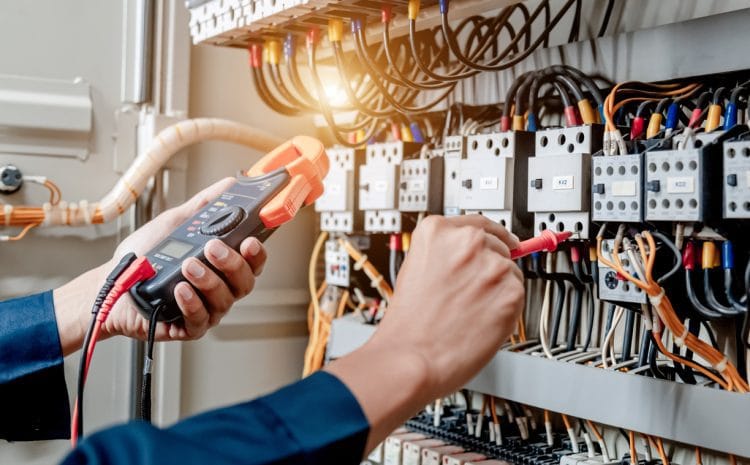What Does a General Contractor Florida Do? Everything You Should Know

In the construction industry, a General Contractor Florida plays a pivotal role in ensuring the success of construction and remodeling projects. These professionals or companies are responsible for coordinating, overseeing, and completing projects within the specified timeline, budget, and local regulations. Their expertise in engineering, architecture, and project management makes them an indispensable part of any construction endeavor.
A General Contractor Florida handles a wide range of responsibilities, from hiring and supervising subcontractors to sourcing quality materials and managing permits. They serve as the central point of communication, ensuring all parties involved are aligned and that the project progresses smoothly. With their extensive knowledge of Florida’s building codes and regulations, they help avoid costly delays or legal issues.
These contractors are skilled at fine-tuning project details to address specific challenges, ensuring that the final outcome not only meets but exceeds client expectations. Whether it’s a residential renovation or a large-scale commercial project, they bring a level of precision and efficiency that ensures quality results.
By hiring a General Contractor Florida, property owners can rest assured that their projects are in capable hands. Their ability to manage all aspects of construction allows clients to focus on their goals while the contractor delivers a seamless and successful project.
Florida building codes outline standards for building, plumbing, mechanical systems, fuel gas, renovation or repair, etc. that licensed contractors should follow. A qualified general contractor Florida ensures the project complies with the protocols for evaluating building materials and parameters in hurricane-zone areas. Read the following article to understand what a general contractor does in Florida in detail.
The Role of a General Contractor Florida
A general contractor is a specialist in planning, managing, and overseeing construction projects, ensuring everything goes well according to the specified parameters. They are accountable for introducing innovative and unique concepts in engineering, architecture, and interior design. Understand what a general contractor does through the following pointers:
- Project Planning and Design Coordination: A general contractor plans, designs, coordinates, and executes the project, ensuring the challenges and constraints are addressed.
- Budgeting and Cost Estimation: They evaluate the project’s scope, essential requirements, and budget to determine the estimated cost.
- Hiring and Supervising Subcontractors: A general contractor typically outsources and supervises subcontractors to perform specific parts of a project.
- Obtaining Permits and Ensuring Compliance with Local Regulations: Licensed general contractors understand their obligations to local regulations and obtain permits if explosions are necessary on the site.
- Scheduling and Timeline Management: They schedule and manage time for different aspects of the project, ensuring everything is done within the client’s deadlines.
- Quality Controls and Inspections: They set protocols for evaluating building materials and construction, ensuring compliance with the highest industry standards under their observation.
- Handling Unexpected Issues: Experienced general contractors can hire emergency subcontractors to seek help to deal with unexpected issues like supply shortages.
In Florida, general contractors handle projects for residential homes, commercial buildings, renovations, repairs, roofing, and outdoor spaces. However, they hire subcontractors for electrical, plumbing, swimming pool, utility line work, air conditioning, etc.
General contractor licensing and requirements in Florida
Licensed general contractors ensure the quality of building materials and the construction methods are according to the highest industry standards and local regulations. They are the most knowledgeable about Florida building codes and carry the necessary insurance coverage benefits to prevent liability risk.
Understand how one can become a licensed general contractor Florida through the following pointers:
- Educational Requirements: Candidates should have a baccalaureate degree of 4 years in construction from an accredited college or any other related degree to prove knowledge in the trade.
- Required Exams and Testing: The candidate must pass state-level certificate examinations (Business, Project Management, and Contract Administration).
- Experience and Apprenticement Requirements: The applicant must have one year of experience as a foreman, one year of experience as a worker, and at least four years of credits from accredited level courses.
The applicant who is at least 18 years old can apply for the following types of licenses in Florida:
- Residential license for repair, renovation, or rebuilding of residential properties
- Commercial license for rebuilding or repair of commercial buildings
- Specialty licenses for electrical installation, for elevators’ repair or installation, and for installing synthetic buildings.
To verify a contractor’s license, download the DBPR (Department of Business & Professional Regulation) app or visit the website.
The Benefits of Hiring a General Contractor Florida
- Expertise and Knowledge: Maintaining a high degree of expertise in construction work ensures quality work and compliance with legal regulations and high industry standards.
- Time and Cost Efficiency: An experienced general contractor efficiently estimates the cost of the project. It involves the pricing of building materials and subcontractors’ charges, ensuring a cost-effective budget and the project’s completion within a stipulated timeframe.
- Network of Reliable Subcontractors and Suppliers: General contractors build a team of subcontractors and vendors for various tasks, such as plumbing, electrical, mechanical, and utility lines, depending on the project.
- Handling Permits and Legal Requirements: There are lots of things in the construction project that need to be handled with permits. A reliable general contractor obtains permits and adheres to building codes, preventing the risk of fines or legal troubles.
- Insurance and Permits: Hiring an insured contractor saves the clients from liability risk in case of accidents because their general liability coverage and worker’s compensation protect them with comprehensive coverage.
Florida-Specific Considerations for General Contractors
- Impact of Florida’s Climate and Weather: Uncertain climate and weather conditions in coastal regions are not ideal for building materials. They can cause rust, decay, and damage them.
- Hurricane-Related Building Codes: The Florida government instructs strict building codes to ensure people’s safety and security. Contractors should install impact-resistant windows and doors and reinforced foundations. Furthermore, elevated construction can mitigate the risk of water intrusion on the property.
- Environmental Regulations: They should consider environmental regulations to make sure the right use of water and no carbon footprint.
- Common Florida Building Materials and Techniques: The materials suited to Florida’s climate are stucco, concrete, brick veneer, etc. Furthermore, the building techniques follow the building codes.
How to Choose the Right General Contractor in Florida
Licensing and credentials: Make sure the general contractor Florida you hire is licensed. Ask for their age, education, training, and certificates to determine whether or not they are an ideal choice.
Experience with Similar Projects and Knowledge of Local Codes: They should have expertise in handling projects like you. It gives you peace of mind because you know you have handed over the work to someone who has knowledge of local codes.
Reviews and References from Past Clients: Ask for the references of their past clients and contact them. Their reviews will help you make an informed decision.
The questions that you should ask from the contractor are about the timeline, project management, and process.
Furthermore, if any contractor hides details about his previous projects, licenses, or lack of transparency in communication, it is a red flag sign for you. Also, know the reviews or testimonials, whether they are favorable for the contractor or not.
Conclusion
The general contractor Florida should be licensed and certified. They should ensure the construction will follow regulations and building codes, preventing the risk of legal troubles. So, research thoroughly about the contractor to get a reliable person for your next project.



